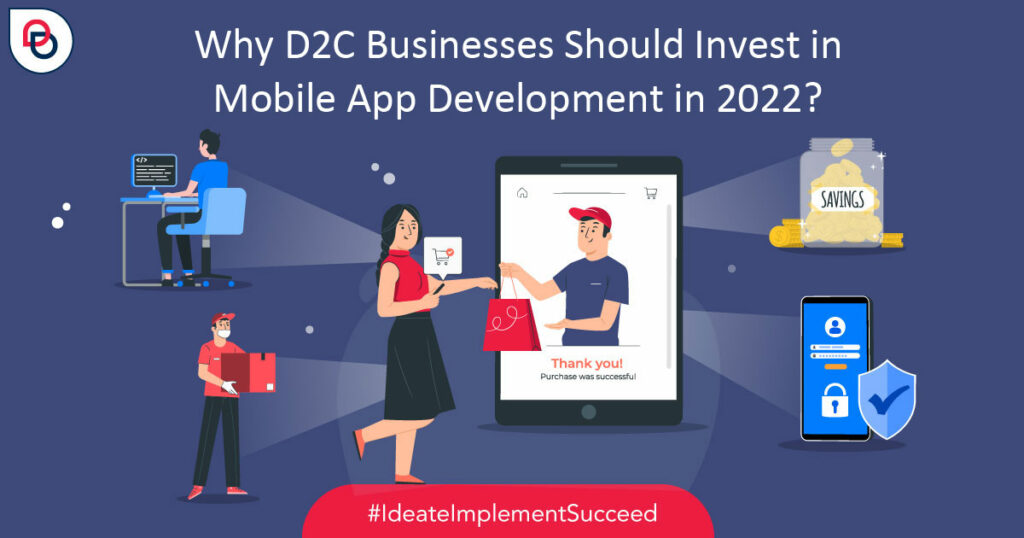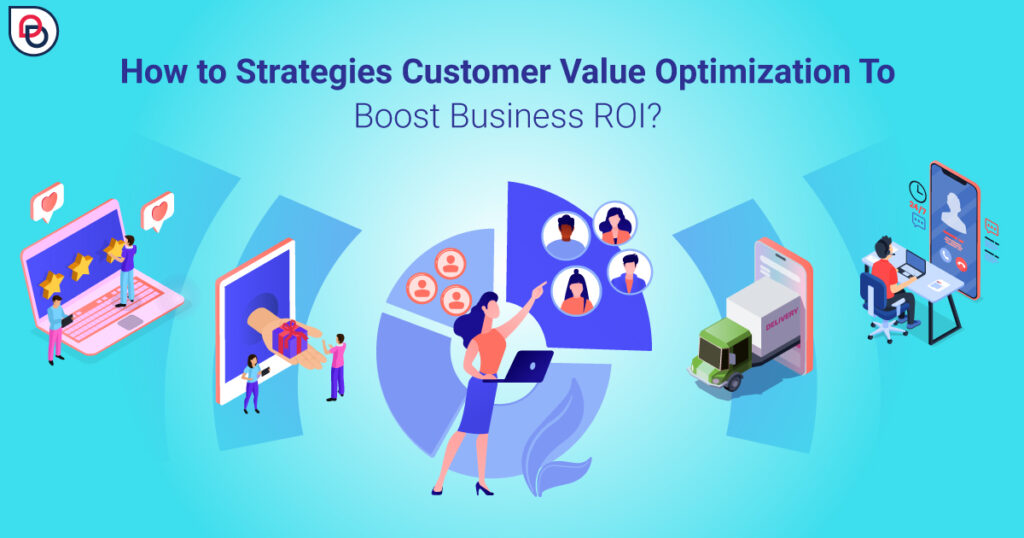How is B2C Marketing Different from B2B Marketing?

How is B2C Marketing Different from B2B Marketing?
The fundamental difference between business-to-business and business-to-consumer businesses is the end-user, the target audience. Traditionally B2B sells to other businesses, while the target audience of a B2C company is individual consumers. Over the years, both business forms have converged and intersected, using similar channels and techniques for development and growth.
Nevertheless, there are dissimilarities, leading to distinctive approaches when forming effective marketing strategies for B2B or B2C business. We will get to all that, but before explaining B2B vs B2C marketing, let’s start by defining the two business processes.
How to Define B2B & B2C Marketing?
B2B: Businesses or individuals offering their goods and services to other businesses. It means that their marketing approach focuses on the interests, requirements, and solving the problems of other enterprises. Some examples are:
- When a manufacturer sells the produce to a retailer.
- A software development company offering Marketing Automation or CRM Software solutions to another enterprise.
- A digital marketing service provider offering SEO, content, marketing, PPC, social media marketing, and other services to other brands.
Now, there are instances where the line between B2B and B2C significantly blurs. For example, an enterprise can adopt both the personas of B2B and B2C. A cosmetics manufacturer can sell the products through their very own retail brand outlets while collaborating with other big retailers to keep their products on the latter’s shelves.
What are the Contrasting Aspects of B2B and B2C Marketing?
The basic point of difference between B2B and B2C marketing is the target audience or end-user and the medium or approach of engagement with them. Let’s check out the distinctive goals of B2B vs B2C marketing.
B2B Marketing Strategies:
It’s all About the ROI:
B2B end users are other companies that look for expertise and efficacy, unlike individual consumers that are more interested in special offers, deals, and in getting entertained. A B2B end-user will assess the return on investment of the product or service. They are driven by business logic and the scalability of the financial returns. They will make queries like the following;
- How will my business profit from the product or service?
- What kind of ROI can I expect?
- When will I start seeing the profits generated via the product/service to roll in?
B2B end users are only interested in buying products/services that would earn them long-term profits.
Lengthier Chain of Command:
In a B2B situation, the sale of a product often requires a longer chain of approval on both ends involving multiple department heads, who authorize the sale. This is unlike in B2C, where the consumer makes instant purchase decisions, and claims ownership of the product without much influence from others. This makes B2B marketing and sales more complicated. When pitching the sale, one has to impress and get a nod of approval from all the gatekeepers involved in the service/product investment.
Long-Term Relation with End-User:
Companies seek long-term relationships compared to individual consumers. For instance, it would be a complex process for supermarkets and retail giants to change suppliers frequently. So, they will seek reliable partners to maintain business continuity without any disruption. A B2B contract lasts for months if not years, so one has to be mindful of developing projects that guarantee long-term yields.
Long-Term Buying Cycle:
For B2B businesses the buck doesn’t end at the sale. It is followed by lead nurturing and enhancing the end-user experience. Only then will the user uphold its long-term commitment. So, throughout the buying cycle, the service or product will undergo constant assessment and evaluation, based on which the future dealings will be decided.
Let’s give you an example that is closer to us; when we offer digital marketing services to an enterprise; we are aiming at the long haul, constantly updating the client of our progress in boosting their online branding. We have clients who have been with us for years, enabling us to witness and aid in their growth as a business entity.
Smaller Pool of B2B Lead Generation:
Compared to B2C lead generation, a B2B set-up has a limited pool of leads. In the latter case, the niche and nature of the leads are more defined and targeted. Accordingly, the sales pitch will differ. B2C has a more generic approach towards targeting a vast group of leads.
Detailed & Informative Content:
The marketing approach is a stark contrast to B2B and B2C businesses. Unlike B2C consumers, B2B audiences prefer gaining in-depth knowledge about the functionality and the outcome of the product or service they are seeking.
So, the idea is to help them gain the necessary insight through detailed content and supporting data so that there is no regret regarding the product/service purchase later on.
Contextual to that, a B2B audience would prefer being attended by the sales and marketing personnel. They want to stay informed, unlike B2C consumers, who might find too many product details to be trivial.
Read More:

A D2C business app gives entrepreneurs the one-stop platform for building brand awareness, improving consumer engagement, and creating data-driven business decisions. Know why apps are the ultimate propeller for direct-to-customer business.
B2C Marketing Strategies:
Purchase Involves a Level of Entertainment:
B2B purchases are pure business deals, unlike B2C purchases that have an element of fun and entertainment to them. In B2B, one has to focus on educating the end-user, but B2C consumers are looking to have an enjoyable shopping experience. The emotions run differently in each form of sale.
Instant Decision-Making:
Compared to the B2B end-users, individual consumers take far less time in deciding to make the purchase. B2C businesses are run by in-the-moment marketing. Such businesses need to generate immediate requirements and desire to own the product for the end-user, to drive instant decision-making for purchase completion. In B2B business, the completion of a sale can take up to months in some cases.
Minimal Chain of Command:
This is a given; compared to B2B, a B2C purchase and marketing have a smaller chain of command. Take yourself as an example; how many people have a say in your purchase of a product from a flagship store? You might get suggestions from one or two people, but mostly you are influenced by the store attendant and the sales executive. When in B2C marketing the buyer is directly convinced to complete the purchase.
Short-Term Buying Cycle:
B2C transactions have a shorter time frame or buying cycle. There is a higher chance of the transaction being one-off. The consumer buying from a brand today might not buy from it the next time. In B2B structures, a single transaction can follow up and scale for years to come.
Marketing & Sales Pitch is Generic:
Unlike the targeted sales and marketing pitch in B2B businesses, B2C has a more generic approach. These businesses have a wider net of consumers, whom they need to entice with an approach and in a marketing language that appeals to all. Jargon and stats won’t work in B2C marketing.
Read More:

Scale unprecedented growth for your business by optimizing your customer experience and retention. Read to know more about the top customer value optimization strategies.
What are the Converging Points of B2C & B2B Marketing?
So, we know the contrasting aspects of B2B and B2C marketing, but there are multiple points of convergence that both kinds of businesses need to be aware of in this age and time.
- All businesses have a strong digital presence these days, and to keep that engagement intact, both B2B and B2C businesses need to respond to inbound queries timely and diligently. Responding to end-user queries helps in building brand visibility and reputation.
- Whether it is a B2B or a B2C business, be sure that the end-user will have done the required research and then approached the business as the final step before the purchase. B2C businesses need to focus on social media reviews and referrals from peers. For B2B, the business will do background checks and review the company performance in the past years internally through sources and networking before approaching to buy a product/service.
- Digital marketing and social media are staples for both kinds of businesses. A digital marketing agency is essential for driving B2B and B2C sales.
Wrapping Up!
On a concluding note, understanding the basics of B2B vs B2C marketing can help a brand devise better, more powerful, and targeted marketing campaigns to drive sales. Nevertheless, the convergence of multiple marketing channels and distinctive approaches can be hard to perceive and execute for businesses, especially SMEs. But for that, you have digital marketing agencies like us, who can provide you with the much-needed guidance and support to surpass those sales figures, irrespective of whether you are a B2B or B2C business.




